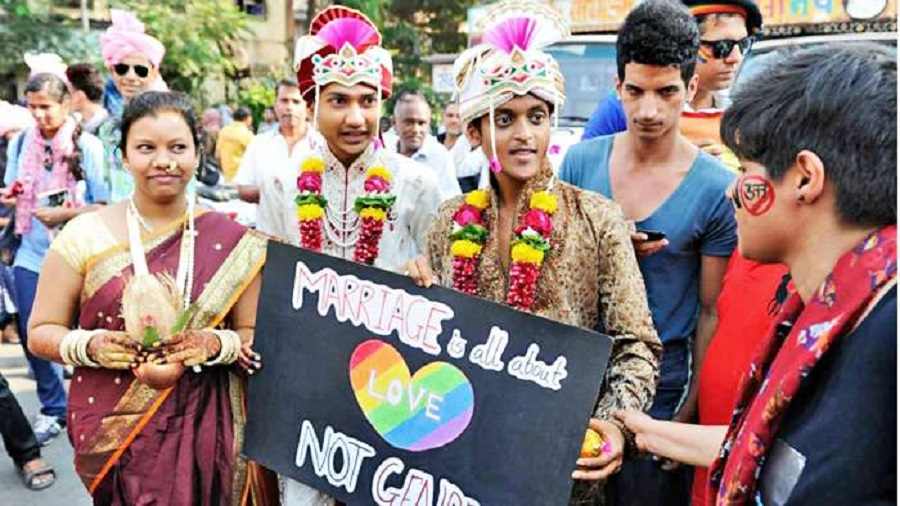They were about the rights of a section of LGBTQ Indians, the Supreme Court hearings from last week, but if you listened carefully, they were also about marriage. Marriage as a fundamental right, marriage as a ticket into society, marriage as protection from the same society, marriage as the right equation for parenthood, marriage as a “union of souls”, marriage as a prescription for personality development, marriage as normalising, and marriage as the ultimate normal.
Off-Centre
The Centre has said that the demand for same-sex marriage is specific to the “urban elite”. Its worry with this issue is that the court should not create or recognise a new social institution. Dear Centre, have you not heard of an athlete called Dutee Chand? Dutee Chand, who is the daughter of cotton weavers from Chaka Gopalpur village in Odisha's Jajpur district. Dutee Chand, who qualified for the 2016 Olympics. Dutee Chand, who won India a silver in the 2018 Asian Games. Dutee Chand, who came out to all after the Supreme Court of India ruled that gay sex is no longer a criminal offence. The same Dutee Chand who wants to marry girlfriend Monalisa. To get back to the point, the LGBTQ hearings appeared to recognise and endorse the institution of marriage as a desirable and legitimising social framework, while discussing suggestions for new membership.
Theory and practice
Twenty years ago, American theorist Judith Butler had wondered --- is kinship always already heterosexual?' She wrote: “For a progressive sexual movement, even one that may want to produce marriage as an option for nonheterosexuals, the proposition that marriage should become the only way to sanction or legitimate sexuality is unacceptably conservative.” But that is theory and reality is far more complex. The petitioners’ position is well in keeping with the trajectory of any radical movement. But this articulation of marriage as a kind of immunity pin out of Master Chef available to some and (God willing) some more raises concerns about another section of the citizenry. According to a National Statistical Office report from 2019, the percentage of unmarried Indians is increasing; in males from 20.8 per cent in 2011 to 26.1 per cent in 2019 and in females, from 13.5 per cent in 2011 to 19.9 per cent in 2019. Those numbers would include heterosexuals and homesexuals.










